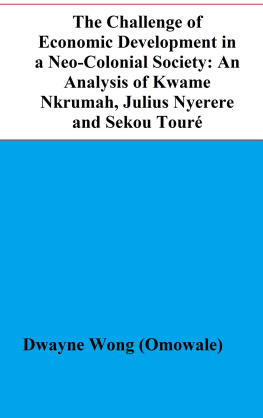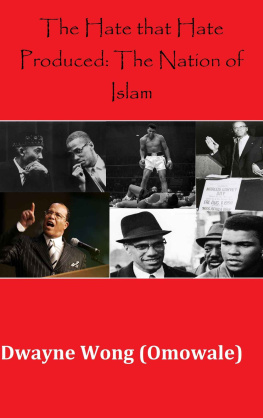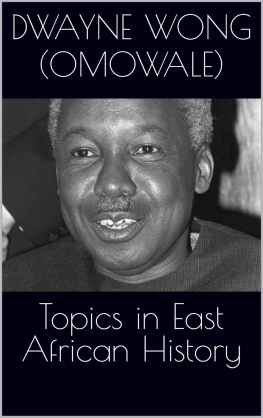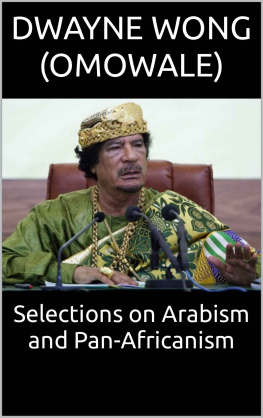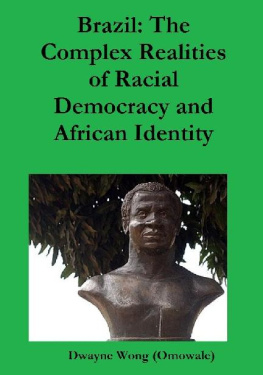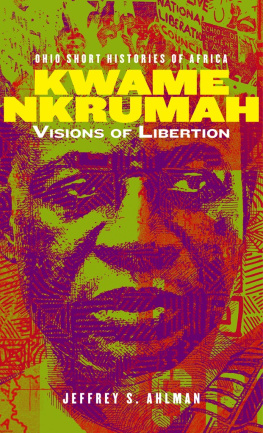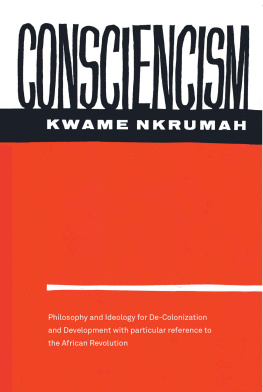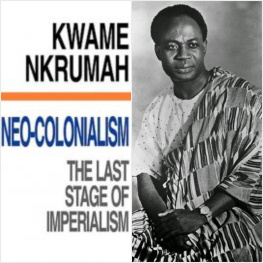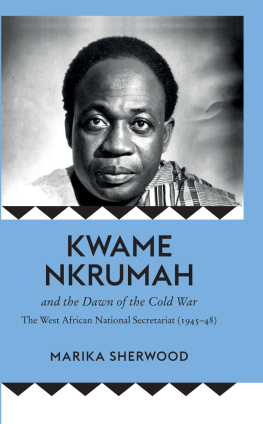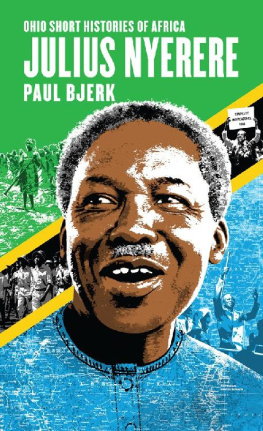TheChallenge of Economic Development in a Neo-Colonial Society: An Analysis ofKwame Nkrumah, Julius Nyerere and Sekou Tour
DwayneWong (Omowale)
Copyright 2015 Dwayne Wong (Omowale)
Allrights reserved.
After achieving independence from theEuropean colonists, a number of African nations struggled to find a successfulmodel of development for their independent nations. Kwame Nkrumah of Ghana,Julius Nyerere of Tanzania, and Skou Tour of Guinea were three of the mostambitious independence leaders to emerge from this era. All three men wereproponents of Pan-Africanism, anti-colonialism, and socialism. Each of the threeleaders also provide a case study for how even the most ambitious leaders inpost-colonial Africa encountered difficulties in developing their nations. Inthe end, all three men failed to completely liberate their nations from thegrip of neo-colonialism and dependency on Western nations.
The first of the three that will bediscussed is Kwame Nkrumah, who led the Gold Coast (renamed to Ghana afterindependence) to independence in 1957. Nkrumah became involved in the movementfor independence after returning from studying abroad. He joined the UnitedGold Coast Convention (UGCC) political party, which was led by a lawyer namedJ.B. Danquah. Differences with the party caused Nkrumah to leave and form hisown political party; the Convention Peoples Party (CPP) in 1949. Whereas theUGCC saw independence as a gradual process that should be achieved as quicklyas possible, Nkrumah demanded immediate independence.
Two of the cornerstones of Nkrumahspolicies were his commitment to Pan-Africanism and his opposition towardsneo-colonialism. For Nkrumah the two policies went hand-in-hand, for hebelieved that the only way for Africa to successfully overcome neo-colonialismwas through unity. Nkrumah described neo-colonialism as follows:
Neo-colonialismisthe worst form of imperialism. For those who practice it, it means powerwithout responsibility, and for those who suffer from it, it means exploitationwithout redress. In the days of old fashioned colonialism, the imperial power had at least to explain and justify at home theactions it was taking abroad. In the colony, those who served the rulingimperial power could at least look to its protection against any violent moveby their opponents. With neo-colonialism, neither is the case.
Nkrumah argued that unity is the firstrequisite for destroying neo-colonialism. He envisioned the creation of theUnited States of Africa and laid out his ideas at the founding of theOrganization of African Unity (OAU). At this meeting Nkrumah distributed copiesof his book Africa Must Unite toAfrican heads of state. Nkrumah alsogave an impassioned speech advocating unity. Kofi Batsa described the speech asfollows:
Isat behind Nkrumah when he spoke to the OAU conference in Addis Ababa in 1963and I watched the faces of the leaders as he left his prepared script andpointing at each in turn, at Haile Selassie, at Tafawa Balewa, at Modibo Kaita , at Maga; he said:If we do not come together, if we do not unite, we shall all be thrown out,all of us one by oneand I also will go. He said: The OAU must face a choice nowwecan either move forward to progress through our effective African Union or stepbackward into stagnation, instability and confusionan easy prey for foreignintervention, interference and subversion. He got a standing ovation for thatspeech and although we felt he should have been calmer and that perhaps he hadgone too far, his reaction was, Let me tell them, let me tell them.
JuliusNyerere also believed in a unified Africa just as Nkrumah did, but he favored agradualist approach. Nyerere believed that unity had to be achieved withregional blocs, such as the East African Federation. Nyerere also foundNkrumahs approach to unity to be unrealistic. Nyerere explained that he wasincreasingly convinced that we are divided between those who genuinely want acontinental Government and will patiently work for its realization, removingobstacles, one by one; and those who simply use the phrase Union Governmentfor the purpose of propaganda. Nyerere continued: To rule out a step by step progress towards African Unity is to hope thatthe Almighty will one day say, Let there be unity in Africa, and there shallbe unity. Nyerere also added that to say that the step bystep method was invented by the imperialists is to reach the limits ofabsurdity. During the debate between the two men over this issue at the OAU summitin 1964, Agyeman recalled that Nyerere delivered aspirited performance that left the objective of a Union Government bleeding todeath on the floor of the Cairo conference hall, speared, as it were, byNyereres flashing verbalism.
Nyerere was not the onlyAfrican leader that Nkrumah found himself at odds with. He frequently foundhimself at odds with other African leaders for a number of reasons. Forexample, Nkrumah criticized African leaders that embraced African socialismrather than the scientific socialism that Nkrumah touted as the correctroad. When Ghanaian agents were implicated in an assassination attempt onPresident Sylvanus Olympio of Togo, a number of African nations threatened tobreak off diplomatic relations with Ghana. Ghana was also linked to anassassination attempt on President Hamani Diori of Niger. Nkrumahs conflicts with these otherleaders really hampered Nkrumahs goal of creating a union government inAfrica.
Kwame Nkrumahs famous axiom was Seek yefirst the political kingdom and all else shall be added unto you. Nkrumah didin fact achieve his political kingdom when Ghana became an independent nation,but it was economic success that would prove to be elusive for Nkrumahas itwas for many African nations. An indicator ofNkrumahs failure to develop Ghana economically was the 1957 wager that Nkrumahmade with Felix Houphout-Boigny to see whose nation would develop thefastest within ten years; this was a wager which Nkrumah lost. While Ghanastruggled to develop, the economic success of Ivory Coast was known as theIvorian Miracle.
Nkrumah did have some success in developingGhana. Schools, hospitals, and roads were built during his presidency. Theproblem with Ghanas development was that Nkrumahs sense of grandeur led him to pursue large and expensivebuilding projects. Among Nkrumahs extravagant projects included Black StarSquare, where large celebrations and parades were held. Nkrumah had the largestdry-dock in Africa, but once this project was complete it was hardly used.Nkrumah also oversaw the building of Job 600, which was constructed especiallyfor the OAU conference in 1965. Martin Meredith described this as the crowningfolly of Nkrumahs regime. It cost 10 million pounds to build this complex andconstruction was launched at a time when the nation was already facingfinancial struggles. This building was to serve as the capital for the uniongovernment of Africa, although Nkrumahs vision of the union government neverpanned out. Nkrumah also oversaw the creation of the Tema Motorway, which cost 6 million pounds.
It became quiteobvious to foreigners that Nkrumah would be very willing to take up developmentprojects, even if they were not practical. A project for the building of asmall factory to produce drugs and pharmaceuticals was turned down in favor ofa larger factory that cost ten times more. Foreigners rushed to sell Ghanaanything they could, including things that were not beneficial to Ghana. Therewere even claims that the Russians had managed to sell snowplows to Ghana. Manyof these foreigners also took to bribing government officials. Nkrumah wasaware that corruption was a growing issue within his party and worked to put astop to it. Nkrumahs attempts to deal with corruption did little to solve themismanagement of Ghanas economy, however. By 1965, Ghana was bankrupt. Therewere huge debts, high taxes, and a shortage of food. Nkrumah wept when hediscovered that Ghanas reserves were less than 500,000 pounds. Recklessspending and economic mismanagement left Ghana bankrupt.
Next page
